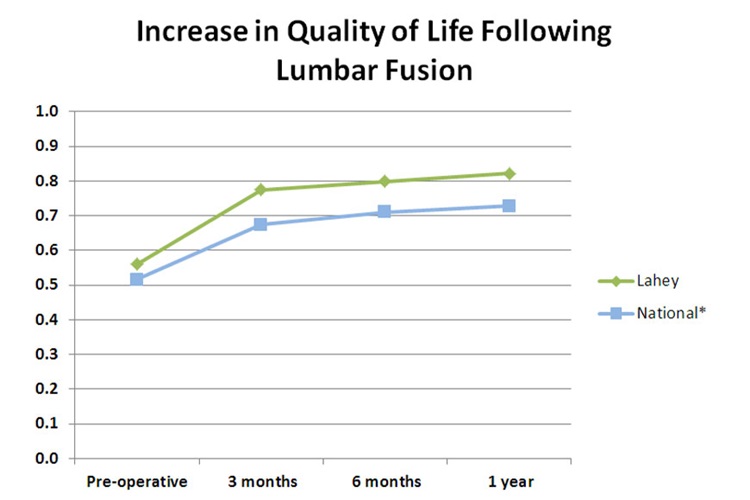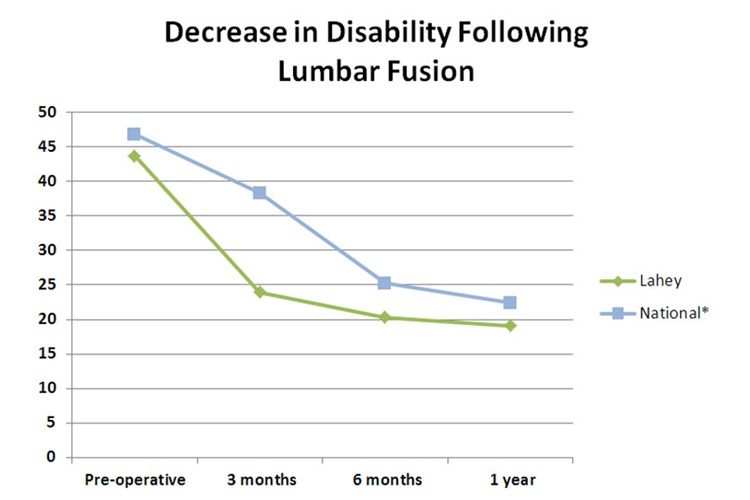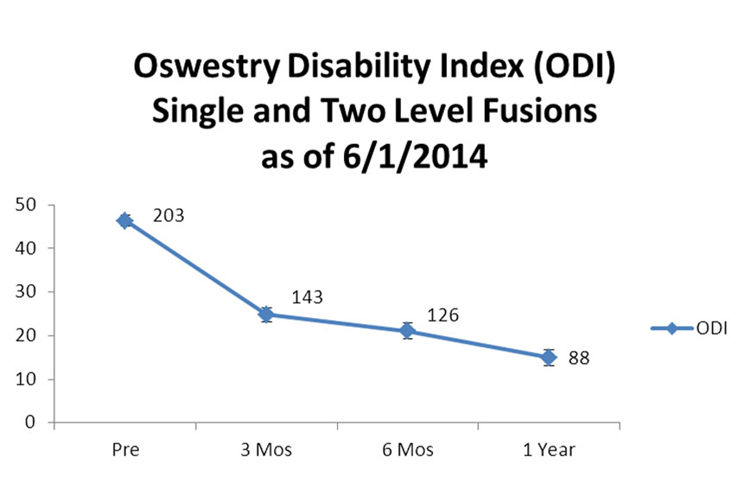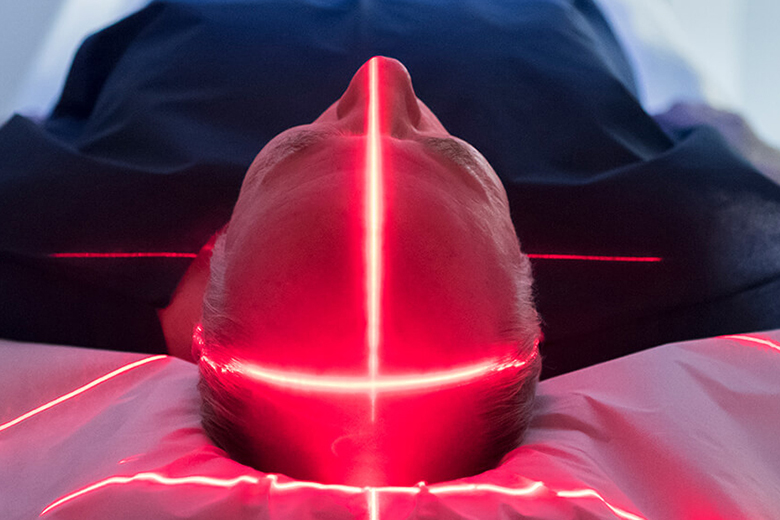Outcomes Registry
Appointments
Spinal Fusion Registry
Lahey Hospital & Medical Center is the first hospital in the Boston area that maintains a Spine Registry to track and publicly share outcomes data. Outcomes for our spinal fusion and spinal deformity correction patients are measured and placed in our registry.
This data:
- Helps us understand the effectiveness of our spine care treatment
- Allow us to develop evidence-based information about the risks and benefits of spinal fusions
- Guides our research in the area of spinal fusions
- Provides valuable information on surgical outcomes to patients considering spinal surgery
Our ultimate goal in collecting this data is to help improve the neurological outcomes, functional ability and quality of life for each patient who comes to us for care.
Highlights of Our Post-Surgery Outcomes
Post-surgery outcomes recorded in our Spinal Fusion (Lumbar Fusion) registry show that infections and the need for reoperations at Lahey are very low:
- Lahey’s 30-day infection rate: less than 1% (about half of the national average)
- Lahey’s 30-day reoperation rate: less than 1%
- Lahey’s 1-year reoperation rate: 0.04%
Increase in Quality of Life Following Spinal Fusion
The graph below shows that patients who undergo spinal fusion at Lahey report a better quality of life after surgery than patients who have the same procedure at other hospitals nationwide.

Decrease in Disability Following Spinal Fusion
The graph below shows that patients who undergo spinal fusion at Lahey experience less disability after surgery than patients who have the same procedure at other hospitals nationwide.

Neurosurgery Spinal Fusion Outcomes
Lahey Hospital & Medical Center has recently been designated a Blue Cross and Blue Shield (BCBS) Center of Distinction for Spine Surgery by BCBS of Massachusetts. All of our spinal fusion patients’ outcomes are measured and placed in our registry. Pictured below is a graph of single and two level fusion outcomes as measured by the Oswestry Disability Index (ODI). A lower score is better. A post-operative score that is less than 20 or 10 points lower than the pre-operative score is considered to be associated with significant improvement or reduction in pain.


